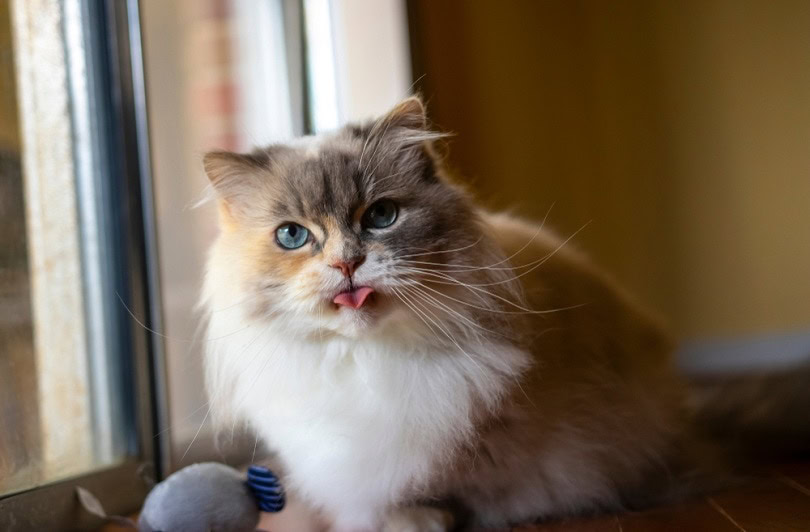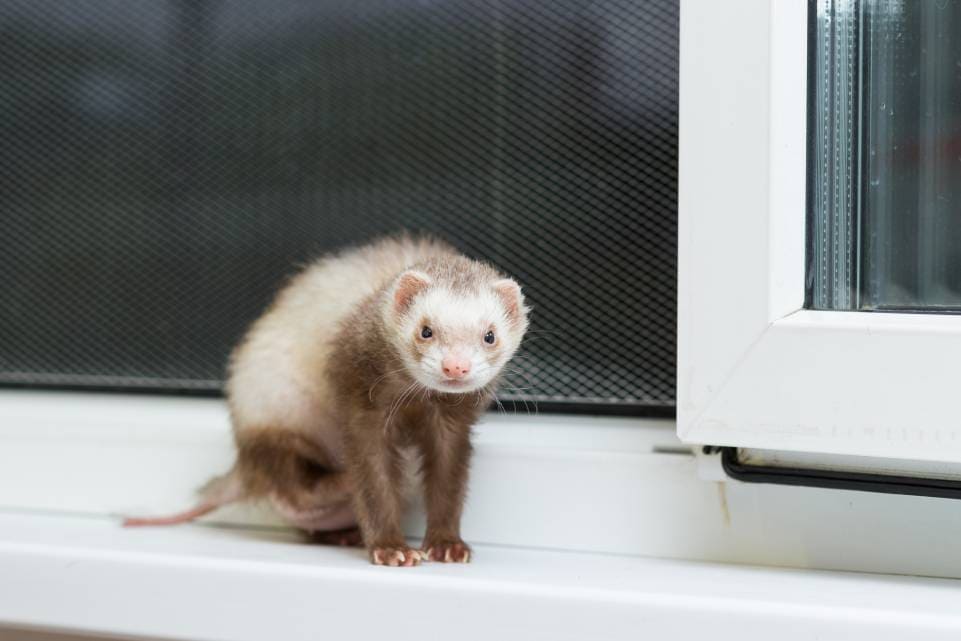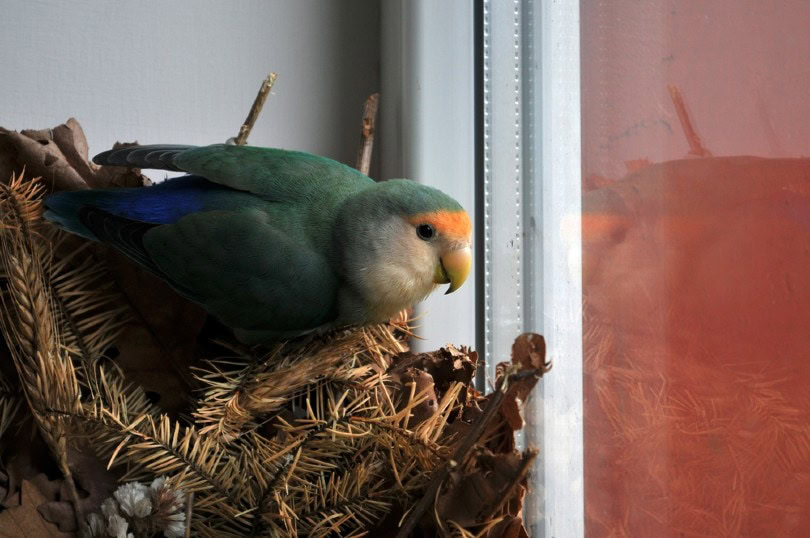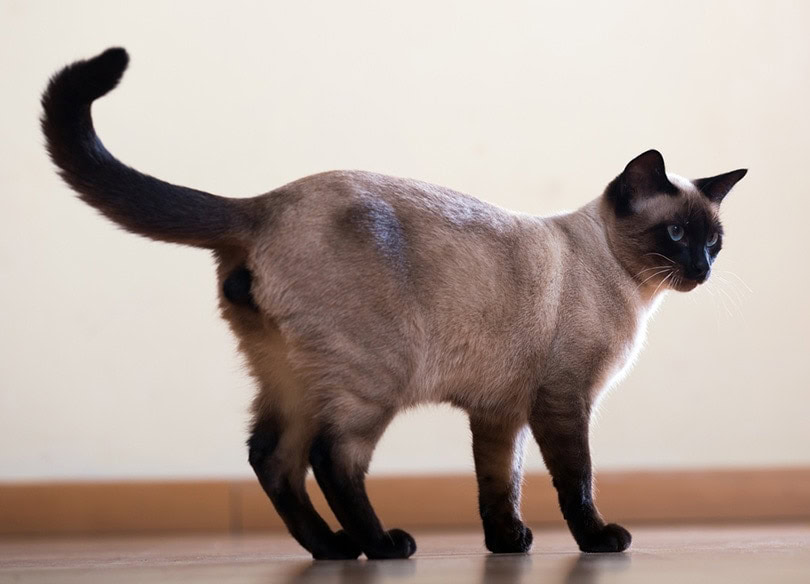VET APPROVED

The information is current and up-to-date in accordance with the latest veterinarian research.
Learn more »Click to Skip Ahead
Like you, your feline can suffer from constipation. If left untreated, constipation can lead to more severe health complications and sometimes even long-lasting ill effects for your cat. Moreover, constipation could also be an indicator of an underlying health condition, and in many cases, it needs long-term management. Therefore, it’s important to keep in mind that home remedies are not an alternative to professional medical advice. If your pet has a health issue, please consult your vet.
However, some home remedies for constipation and home adjustments may help, including the five we discuss below, alongside appropriate veterinary treatment and monitoring.
If your cat is suffering from constipation, please consult with a veterinarian promptly, as the recommendations below will not be sufficient to resolve your cat’s issue, and by delaying the necessary diagnostics and treatment, your cat may experience worse side effects.

The 5 Home Remedies for Cat Constipation
After your cat has been examined by the vet, and the cause for their constipation established and treated, there are some extra remedies and home adjustments you can try to ease your cat’s recovery, as long as they are in agreement with your vet’s advice. Some of these may include:
1. Fiber-Rich Foods
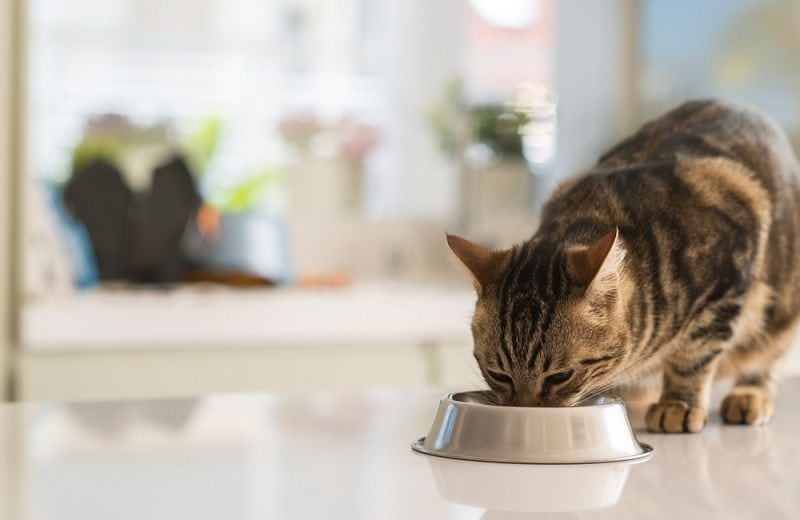
Fiber-rich foods can help some cats when they’re being treated for constipation. While fiber is essential for all living things, it is sometimes lacking in commercial cat diets. Speak to your vet about adding a small amount of canned or pureed pumpkin, without any additives, flavorings, or artificial sweeteners, to your cat’s diet, or opt for high-fiber gastrointestinal prescription diets.
Products like psyllium can also help your cat’s digestive tract get back on track. As we mentioned earlier, consult your vet before starting any treatment plan for your pet to ensure it’s the right choice for their specific condition.
- Natural remedy for constipation
- Provides your cat with more fiber
- Depending on the product, it may lead to diarrhea or worsen constipation, if fed inappropriately
2. Hydration Station
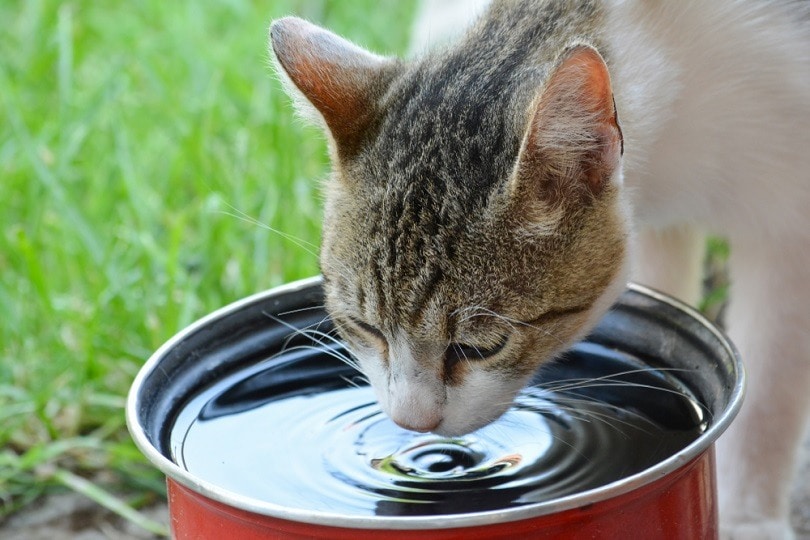
Dehydration may be one of the causes of constipation. If your cat dislikes drinking standing water, you can boost their water intake by serving more wet cat food. Additionally, you can entice your cat to drink by purchasing a cat water fountain or running the faucet when they’re near the kitchen sink.
- Hydration keeps cats healthy
- Cheap solution
- Some cats may not like to drink from water bowls
- Canned food is more expensive than dry food
- Wet food can increase the likelihood of plaque buildup
3. More Exercise and Weight Management
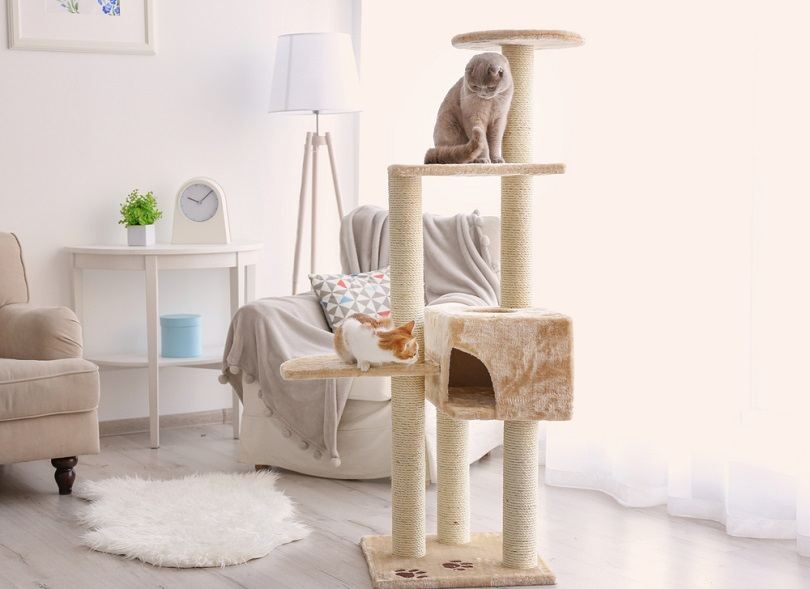
Physical activities not only get your cat moving, but they also boost normal intestinal movement. Encourage your cat to pounce and play by using interactive cat toys, catnip, and plush toys.
- Helps promote a healthy weight
- Reduces stress
- Might be more challenging to do in apartment settings or with elderly cats
4. Add More Litter Boxes
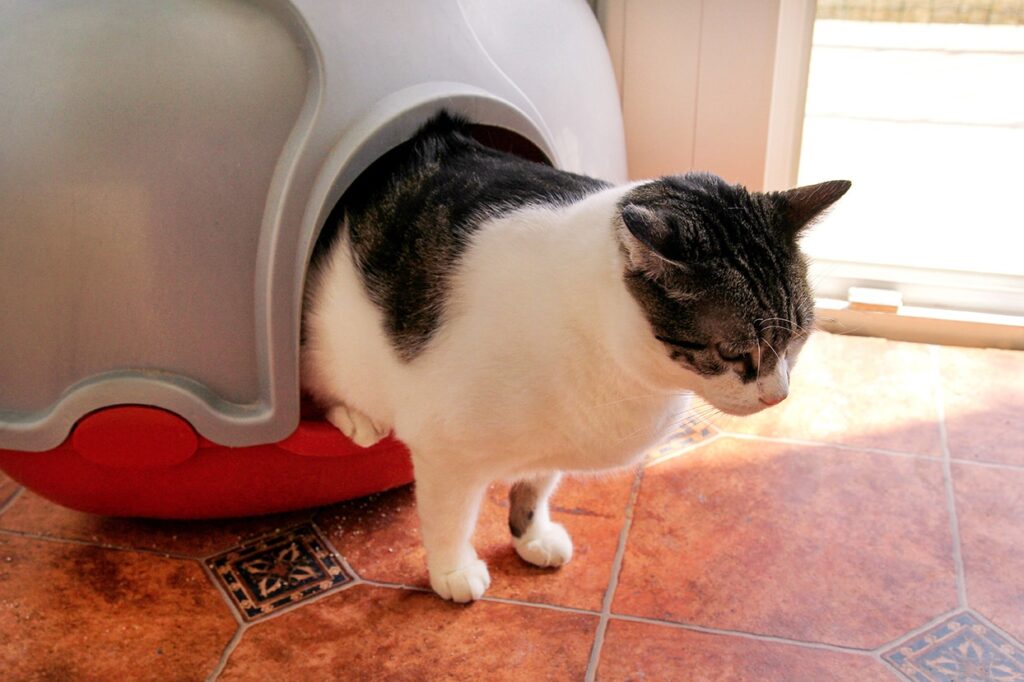
Cats are fickle creatures and often turn up their noses at the thought of using a not-so-pristine litter box. Avoiding the litter box can lead to constipation. Avoiding the litter box can lead to constipation. If you can’t clean your litter box daily, consider adding more to your household. Keep a litter box in the basement, bathroom, or spare bedroom so your cat always has an immaculate place to do their business.
- Encourages your cat to use the bathroom
- More litter boxes to clean
Cleaning up after our pets is hardly the most fun part of having them. Hepper's Advanced Bio-Enzyme Cat Litter Deodorizer can help to naturally break down odors in your litter box upon contact. It's fragrance-free, biodegradable, and safe to use around your pets.
- Bio Enzymatic Cat Litter Freshener - Smart formulation uses natural ingredients eliminating cat...
- Save Money - Stuff for cats isn’t the cheapest. With this litter box odor eliminator, you’ll...
- Every Litter, Every Surface - Are you afraid this additive won’t work on your litter? Fear not!...
At PangoVet, we've admired Hepper for many years, and decided to take a controlling ownership interest so that we could benefit from the outstanding designs of this cool company!
5. Ease Stress
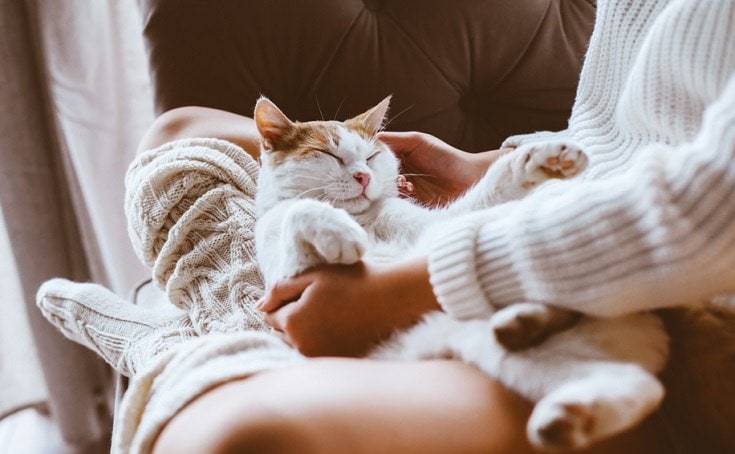
Stress and anxiety can worsen constipation. Your cat may get anxious if you’ve recently moved or introduced a new pet. Calming pheromones are an excellent, all-natural method to calm spastic kitties. You can spray a pheromone solution on your pet’s bed or favorite chair or use a diffuser.
- Relaxes cats
- Reduces clawing
- May not work on all cats

Possible Causes of Cat Constipation
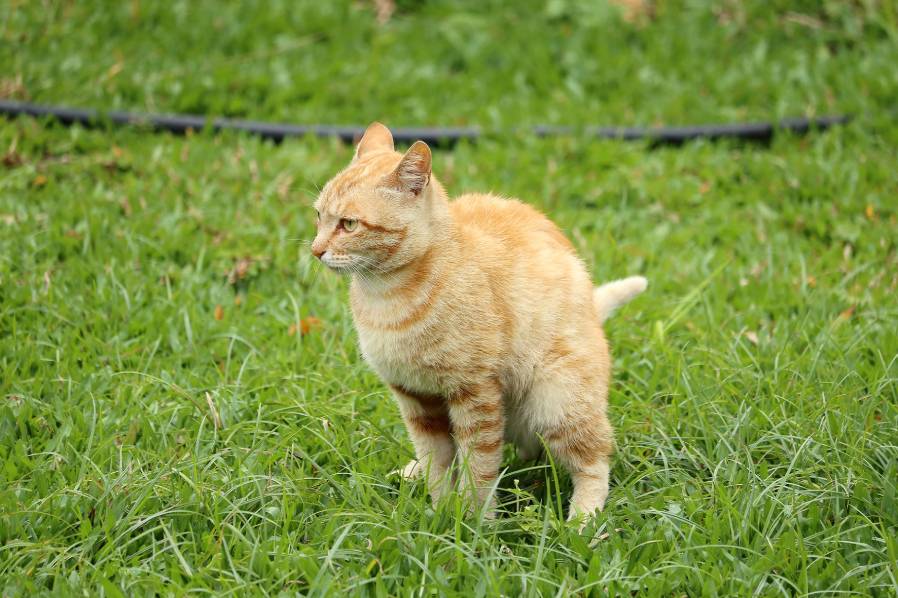
There are many possible culprits behind your cat’s constipation, some of which may include but are not limited to:
- Low-fiber diet
- Obesity
- Lack of exercise
- Stress
- Litterbox avoidance
- Dehydration
- Hairballs
- Intestinal obstruction
- Pain, arthritis, or other spinal issues
- Organ system disease – kidney disease
- Neurological conditions
- Pelvic injuries or narrowing
- Megacolon
- Inflammatory bowel disease
- Cancer
- Anal gland disease

Common Constipation Signs
Some signs your cat may be exhibiting if they are constipated may include:
- Vomiting
- Straining or pushing in the litter box
- Hard, dry stools
- Weight loss
- Lethargy
- Bloody stools
- Reddened or prolapsed anus

When to See a Vet
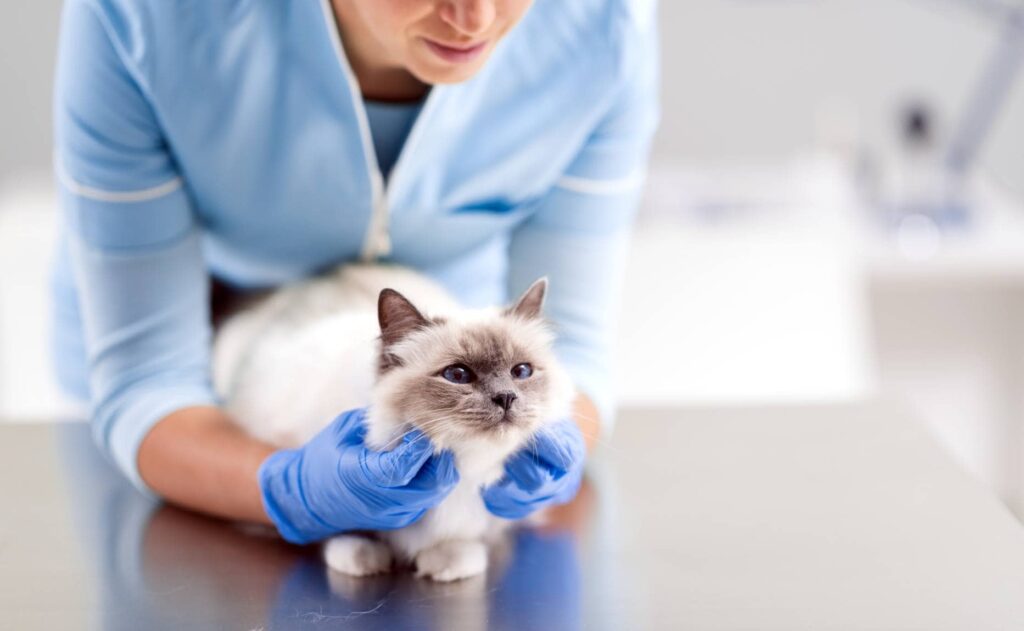
Though you should always seek professional help for any medical problem your pet might be experiencing, take your cat to the vet right away if:
- They haven’t defecated in 24-48 hours, but aren’t straining
- They are vomiting
- You notice blood in their stools
- Increased fatigue or weakness
- They are straining to defecate
- They are meowing and are in pain
- Not eating or drinking for 24 hours

Conclusion
If your cat is struggling to defecate, this can turn into a serious health problem especially if left untreated. Alongside prompt veterinary treatment, these five home remedies can help your cat get back to regularly scheduled bathroom breaks. As always, check with your vet before you put your pet on any treatment program.
- Related Read: How Do Parakeets Mate & Reproduce?
Featured Image Credit: Dave’s Domestic Cats, Shutterstock
